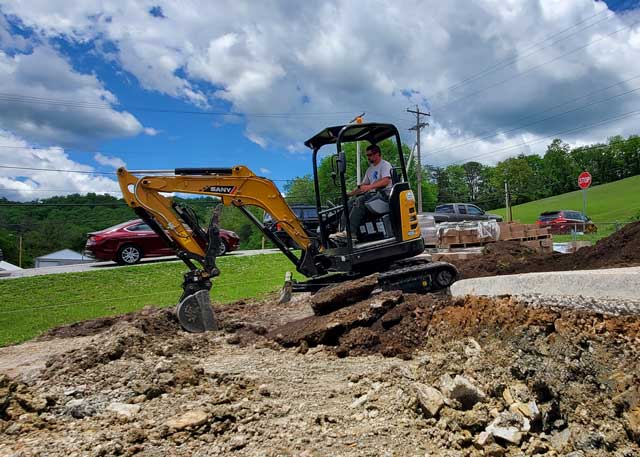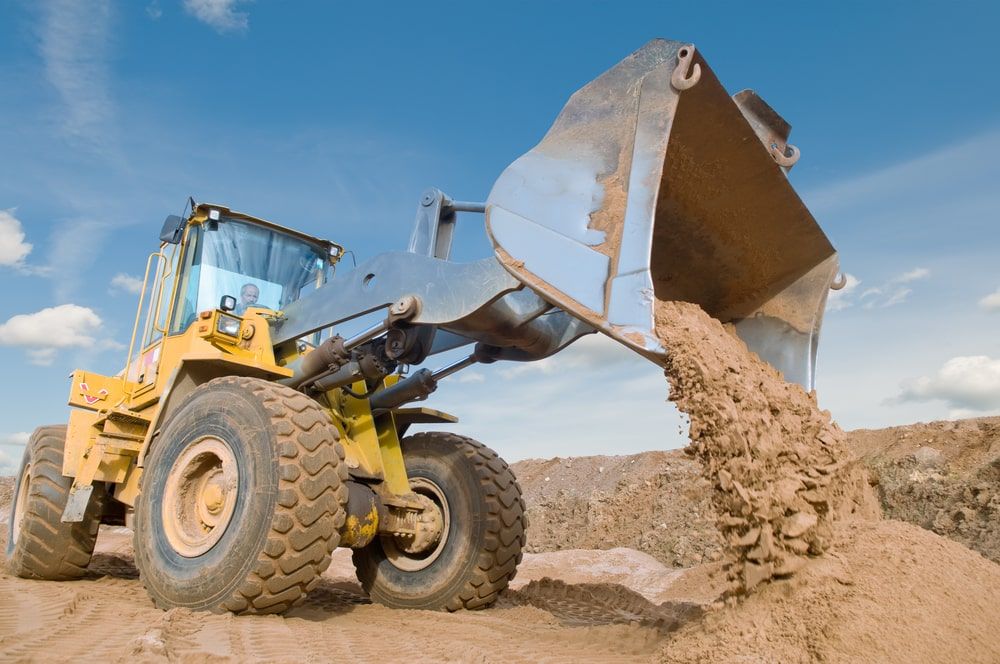Dump Truck Companies in Ohio - Trusted Dump Truck Services Across Ohio
Dump Truck Companies in Ohio - Trusted Dump Truck Services Across Ohio
Blog Article
Introducing the Art of Excavation: Pro Tips for Safe and Efficient Excavating
In the realm of excavation, the proficiency of secure and productive digging is an art type that calls for adherence, expertise, and accuracy to established methods. As soil is transformed and earth is relocated, the ins and outs of excavation reveal themselves, requiring an eager understanding of devices, soil structure, security methods, and ecological considerations. The know-how needed to navigate these aspects successfully can imply the difference between an effective excavation job and a possible calamity. By untangling the layers of this elaborate procedure, a globe of insights and approaches waits for those seeking to boost their excavation skills to brand-new heights.
Value of Proper Devices
To make certain the safety and performance of any kind of excavation task, using the appropriate equipment is critical. Excavation tasks differ in scope and intricacy, varying from little residential landscape design tasks to large building and construction undertakings.
These functional devices come in different dimensions to suit different project needs. Miniature excavators are optimal for smaller sized tasks, while larger excavators take on more comprehensive jobs efficiently.
Besides excavators, various other crucial tools consists of dump vehicles, trenchers, and bulldozers. Unload trucks are crucial for getting rid of and delivering excavated materials, while plates are made use of for digging narrow and deep trenches. Excavators master jobs that call for pushing large quantities of dirt or particles. By investing in the ideal devices, excavation jobs can be completed safely, promptly, and with accuracy.
Comprehending Dirt Structure
A detailed grasp of soil structure is fundamental for carrying out excavation projects with accuracy and security. Understanding the various kinds of soil is crucial as it straight affects excavation methods, devices selection, and total job effectiveness. Soil composition generally contains 4 main components: sand, silt, clay, and raw material. Each part has special residential or commercial properties that affect exactly how soil responds to excavation processes.
Silt fragments are smaller than sand but bigger than clay, providing modest drain and communication. Organic matter, such as decomposing plant material, affects soil fertility and security.
Prior to commencing excavation, performing soil tests to determine its structure and attributes is vital. This details aids in picking the suitable equipment, applying safety actions, and establishing excavation methods tailored to the certain soil conditions - septic ohio. By understanding soil structure, excavation experts can boost task end results while ensuring safety and adherence to best methods
Precaution and Protocols
Comprehending dirt composition is the cornerstone whereupon precaution and methods for excavation jobs are built, making certain the health of workers and the success of the undertaking. There are numerous essential steps that need to be applied to reduce risks and stop accidents. when it comes to security throughout excavation.
Primarily, before any kind of digging starts, an extensive examination of the website must be carried out to identify any type of possible dangers such as below ground energies, unpredictable dirt problems, or close-by frameworks that could posture a threat. It is crucial to have an experienced person manage the excavation process to ensure that all security methods are complied with strictly.
Furthermore, all workers involved in the excavation must be properly educated in risk-free excavating practices and the proper operation of equipment. By adhering to these safety and security procedures and protocols, excavation projects can be finished efficiently and without event.
Reliable Excavation Planning
When embarking on an excavation job, thorough visit this site preparation is necessary to make certain effectiveness, safety, and successful end results. Efficient excavation planning involves several essential steps that are essential for the smooth execution of the project. The very first action is to conduct a complete site analysis to identify any potential hazards, such as below ground energies or unpredictable soil problems. This information is vital for developing an in-depth excavation plan that consists of precaution and risk mitigation approaches.
Once the site analysis is complete, the next step is to create a clear timeline and timetable for the excavation activities. This includes determining the sequence of jobs, equipment demands, and manpower allotment. Appropriate organizing assists prevent delays and makes sure that the task remains on track.

Furthermore, interaction among all employee is critical during the preparation phase. Clear directives, routine updates, and efficient sychronisation are essential for a successful excavation task. By investing time and initiative in precise preparation, excavation groups can dramatically enhance efficiency, minimize threats, and accomplish effective outcomes.

Handling Environmental Factors To Consider
With boosting focus on ecological sustainability in construction methods, taking care of environmental factors to consider has actually ended up being a vital facet of excavation jobs. Excavation activities have the prospective to influence the surrounding atmosphere through soil disintegration, sediment runoff, environment disturbance, and contamination of water sources. To minimize these risks, it is important to implement best practices that focus on environmental management.

Moreover, proper waste management is crucial to stop soil and water contamination. Carrying out treatments for the disposal of unsafe products, recycling of waste products, and reducing the usage of dangerous chemicals can significantly reduce the ecological impact of excavation jobs. By integrating these methods into excavation planning and execution, construction companies can make sure that their tasks are not only safe and effective yet likewise environmentally liable.
Verdict
To conclude, grasping the art of excavation calls for a comprehensive understanding of proper devices, soil composition, precaution, and efficient preparation. By following these guidelines and considering ecological variables, excavations can be performed securely and effectively. It is crucial to focus on security and productivity in every digging task to make certain effective results.
As dirt is transformed and planet is relocated, the complexities of excavation disclose themselves, demanding a keen understanding of tools, dirt make-up, safety and security methods, and environmental factors to consider.To ensure the safety and security and effectiveness of any excavation task, utilizing the suitable tools is paramount.A comprehensive understanding of dirt composition is fundamental for implementing excavation jobs with accuracy and safety and security. Recognizing the different kinds of dirt is vital as it directly affects excavation techniques, devices choice, and general project effectiveness. By comprehending dirt make-up, excavation additional hints specialists can improve task outcomes while ensuring safety and security and adherence to best methods.
Report this page